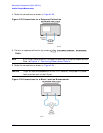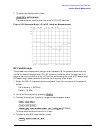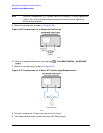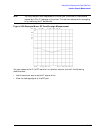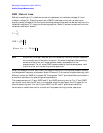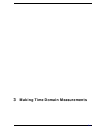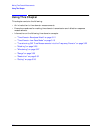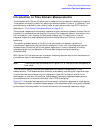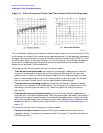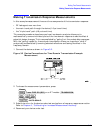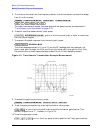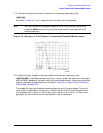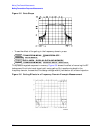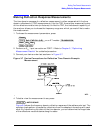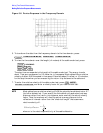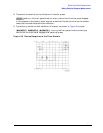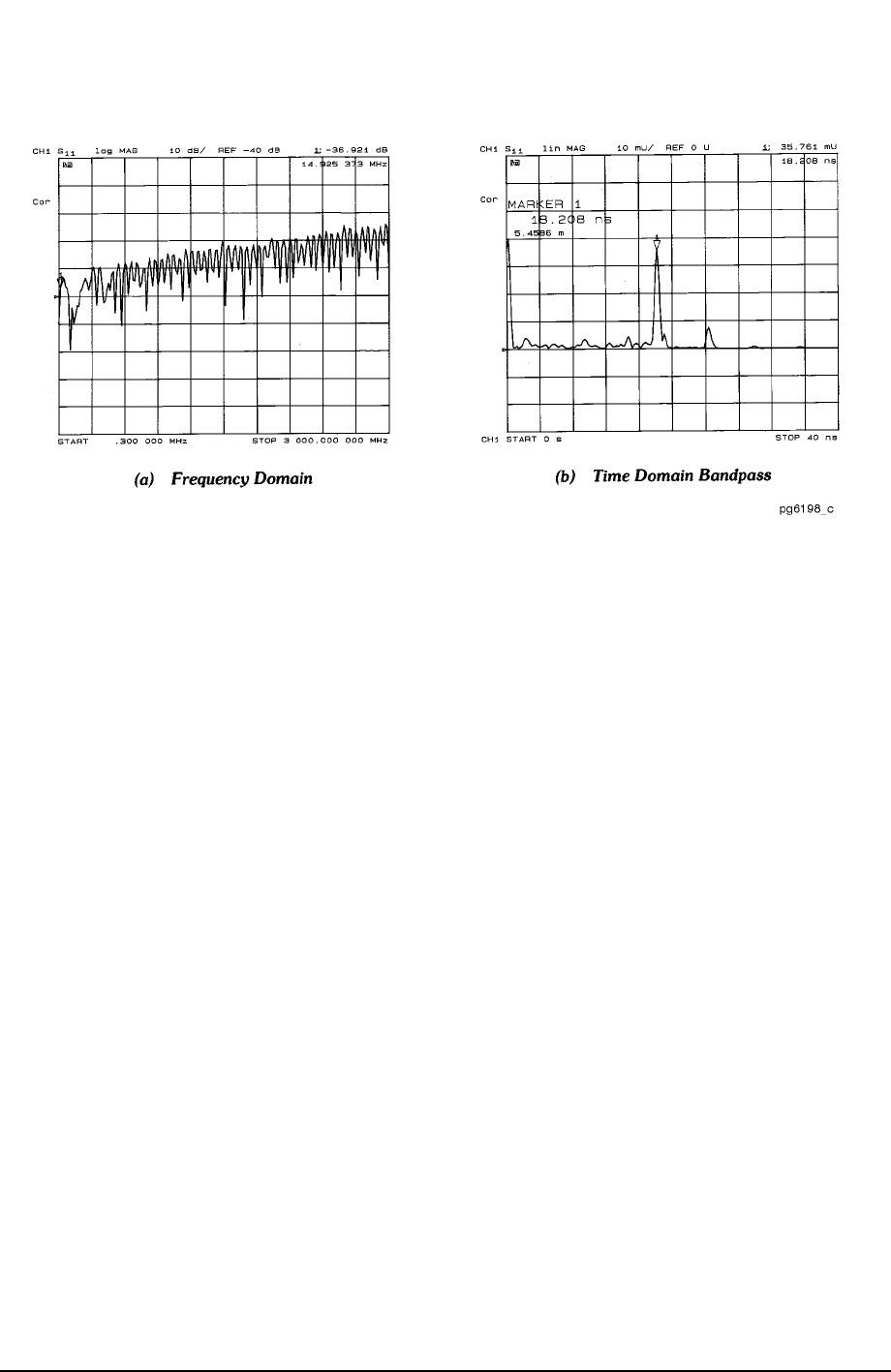
3-4
Making Time Domain Measurements
Introduction to Time Domain Measurements
Figure 3-1 Device Frequency Domain and Time Domain Reflection Responses
The time domain measurement shows the effect of each discontinuity as a function of time
(or distance), and shows that the test device response consists of three separate impedance
changes. The second discontinuity has a reflection coefficient magnitude of 0.035 (i.e. 3.5%
of the incident signal is reflected). Marker 1 on the time domain trace shows the elapsed
time from the reference plane (where the calibration standards are connected) to the
discontinuity and back: 18.2 nanoseconds.
The analyzer has three frequency-to-time transform modes:
• Time domain bandpass mode simulates the time domain response of an impulse
input and is designed to measure band-limited devices. Although this mode is the
easiest to use, it results in less time domain resolution than low pass mode, and may
result in some magnitude errors at low frequencies when gating is used. For devices
that are not band-limited, one of the low pass modes is recommended.
• Time domain low pass step mode simulates the time domain response of a step
input. As in a traditional TDR measurement, the distance to the discontinuity in the
test device, and the type of discontinuity (resistive, capacitive, inductive) can be
determined.
• Time domain low pass impulse mode simulates the time domain response of an
impulse input (like the bandpass mode). Both low pass modes yield better time domain
resolution for a given frequency span than does the bandpass mode. In addition, when
using the low pass modes, you can determine the type of discontinuity. However, these
modes have certain limitations that are defined in "Time Domain Bandpass Mode" on
page 3-12.
The analyzer has one time-to-frequency transform mode:
• Forward transform mode transforms CW signals measured over time into the
frequency domain, to measure the spectral content of a signal. This mode is known as
the CW time mode.



